A community consoles itself and prepares for worse news to come
'Now I also feel for my relatives and friends who fight. And I left them'
This time last week, Dariya Mykhayliv was in Kyiv saying goodbye to her mother, who had been critically ill and died a few days before war broke out. “We just managed to have the funeral,” says the 47-year-old, who is wearing a Ukrainian flag over her shoulders and holding a daffodil given to her by a stranger in the crowd. When the Russian invasion began, it was impossible to fly back to the UK, where Dariya works as an economics lecturer and lives with her husband and two teenage children in York.
“We had to flee via Poland,” she explains quietly, with the sounds of an emotional protest on the edge of Piccadilly Gardens sometimes drowning her out. She was with her husband in Kyiv and someone needed to get back to look after the children. Dariya calculated that she had to go with him. “He’s not Ukrainian, he wouldn’t be able to get to the border without me,” she says.
But leaving left her heartbroken and she mentions it several times in our brief conversation. “I felt ashamed,” she says about departing her homeland in its darkest hour. “I went with him and crossed the border and went home. But to be honest, my home is also there, and I felt like I would not leave,” she says. She knows she wouldn’t be much help in Kyiv now, where the population is under curfew and spends its nights in bomb shelters, but somehow, she wishes she was there. “I have been with my mum when they already had this war scare. I had no problem being there – and now I also feel for my relatives and friends who fight. And I left them.”
Around us, girls are perched on their fathers’ shoulders and young Ukrainians cover the steps of the Queen Victoria statue, some with yellow and blue bandanas on their heads or flowers in their hair. Every 20 minutes or so, the crowd sings Shche ne Vmerla Ukrainy i slava, i volia, the stirring national anthem of Ukraine that was banned by the Soviet Union a century ago and which this weekend has been sung in Trafalgar Square and played by the London Philharmonic. “The glory and freedom of Ukraine has not yet perished” is what it means, and when it was sung by a grieving collection of the Ukrainian diaspora in Manchester yesterday, it was stripped of its martial grandeur; sung not with swagger but weary sadness.
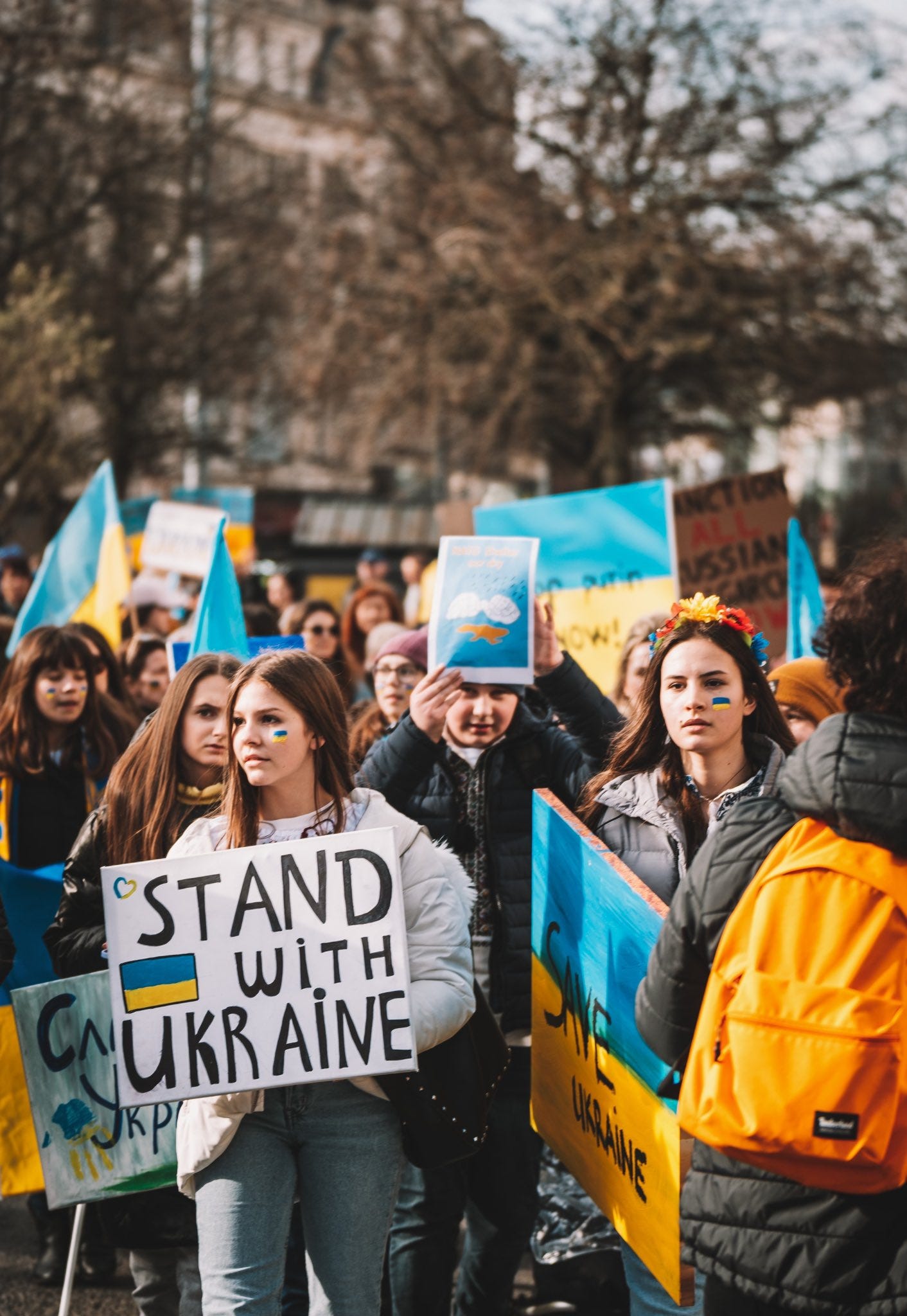
Dariya sings it softly next to me. “Now all I can do is gather the attention of what’s going on in my homeland,” she says. Her brother is a doctor in the ambulance service and some of her friends have signed up to fight. As the “Stand with Ukraine” vigil goes on, she reads messages on her phone. One of her friends lives in an area just outside of Kyiv which has seen fierce fighting near one of the country’s airports. “She tells me all the time what is going on. I know these places where the bombs are.”
A good number of the people here are from Manchester’s large Ukrainian community, some of whom worship at St. Mary's Ukrainian Catholic Church on Cheetham Hill Road. The community has been here since the nineteenth century and grew by thousands during the second world war.
There are also Brits in the crowd, like Paul, a roofer from Widnes who fell in love with Ukraine many years ago and spends every summer in the country teaching English; and Matthew, a final-year student who spent three years in Russia and translates some of the non-English speeches for me. In close succession, speakers from Russia and Belarus take the microphone to condemn the invasion.
Michael has come with his 11-year-old daughter Anastasia from their home near Huddersfield. He moved from western Ukraine in 2014 and he has struggled to think about anything else since war began last week. “I am watching the news all day and all night,” he says, with Anastasia on his shoulders. “I can’t sleep since Wednesday.”
Nearby, Vlad is clutching his daughter Diana. What’s it like hearing this crowd sing the Ukrainian anthem, I ask him? “It’s hard to explain what you’re feeling,” he says. “We would like to show everyone that we need help from Europe. One country on its own cannot fight so massive and strong a country as Russia.” Both men’s daughters, Anastasia and Diana, were born in England and sound like any other children at your local primary school. And both say they want to visit Ukraine. “Yes but we cannot go now,” Vlad says to Diana.
There is something deeply moving about an overseas community gathering while its country is at war. It’s a meeting and a vigil and a protest all at the same time — a chance to express anger, stress, sorrow and the particular helplessness that comes with being safe while your compatriots are in peril. My Jewish grandparents met at such a gathering in Hyde Park during the second world war, when Czech refugees in London gathered to hear speeches about their invaded homeland. The event allowed Czechs to find their people while they lived scattered across London in cramped flats and alongside unwelcoming neighbours. A few Ukrainians I speak to say they felt almost compelled to stop watching the news and come here. “This meeting is a small [thing] what we can do for our country,” says Michael.
Some of the women and girls are wearing vinok, Ukrainian flower crowns. “We are born with this!” says Nadya, pointing at her head while keeping an eye on her daughters Kateryna and Karina as they play with their friends around us. Her platok, a beautiful yellow shawl stitched with roses, once belonged to her grandmother and she says it comes out for special national days. Her father in Ukraine is hunkered down in a shelter and her sister — in the Black Sea city of Mykolaiv, near Odessa — is under bombardment. “They’ve had attacks in the night,” she says. “It’s really horrible.” Nadya lives in Middleton and spends most of her time with other Ukrainian families. She has explained what war is to her daughters — not every detail, of course, but not shying away from it either. “We explain people die,” says Nadya, preparing her children in case there is worse news to come.







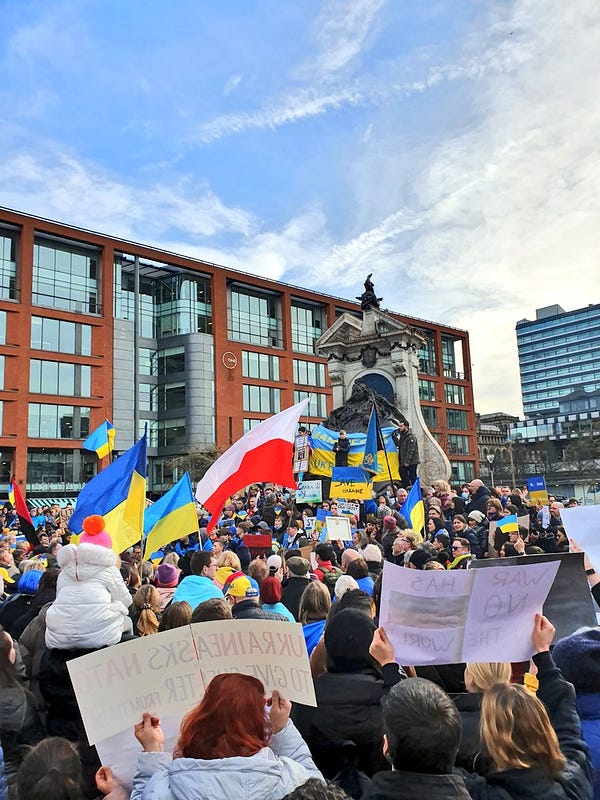
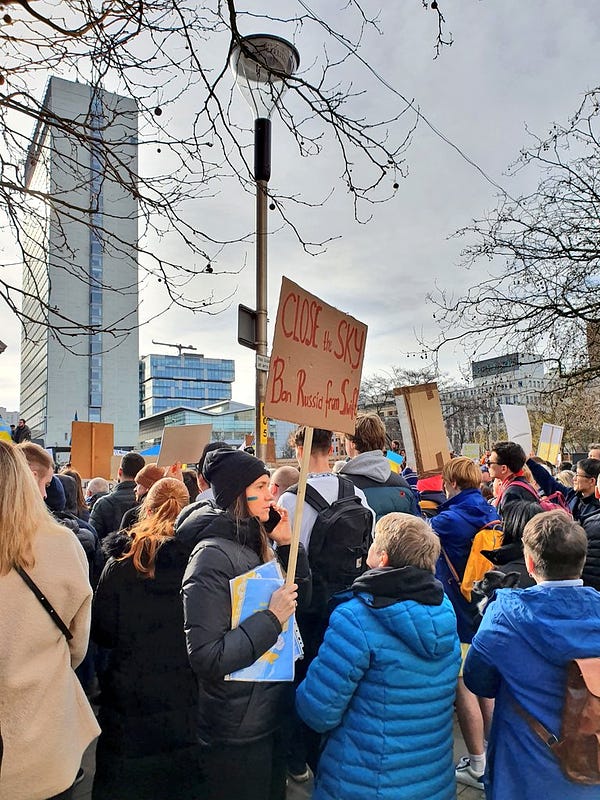
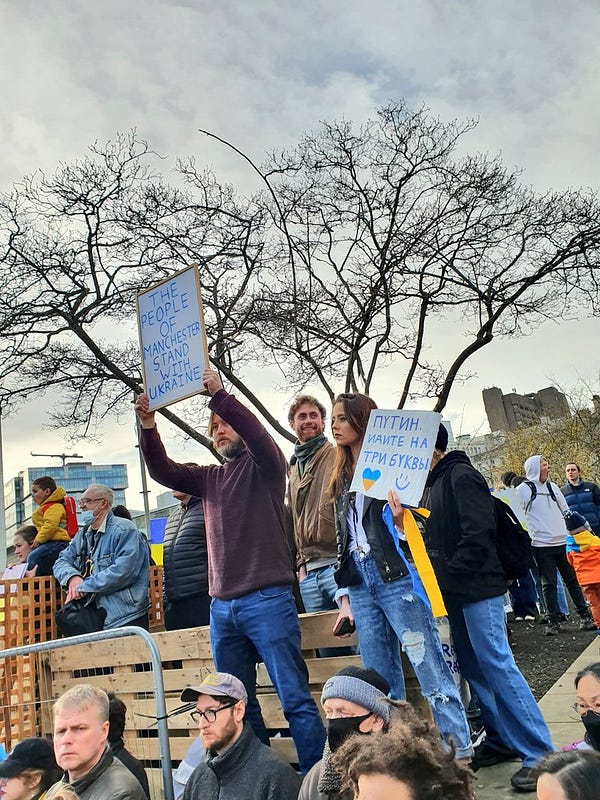
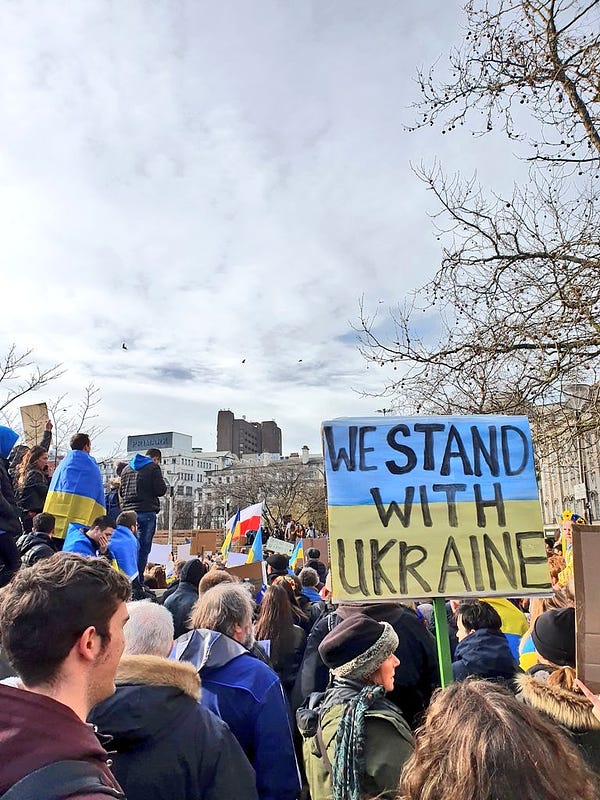
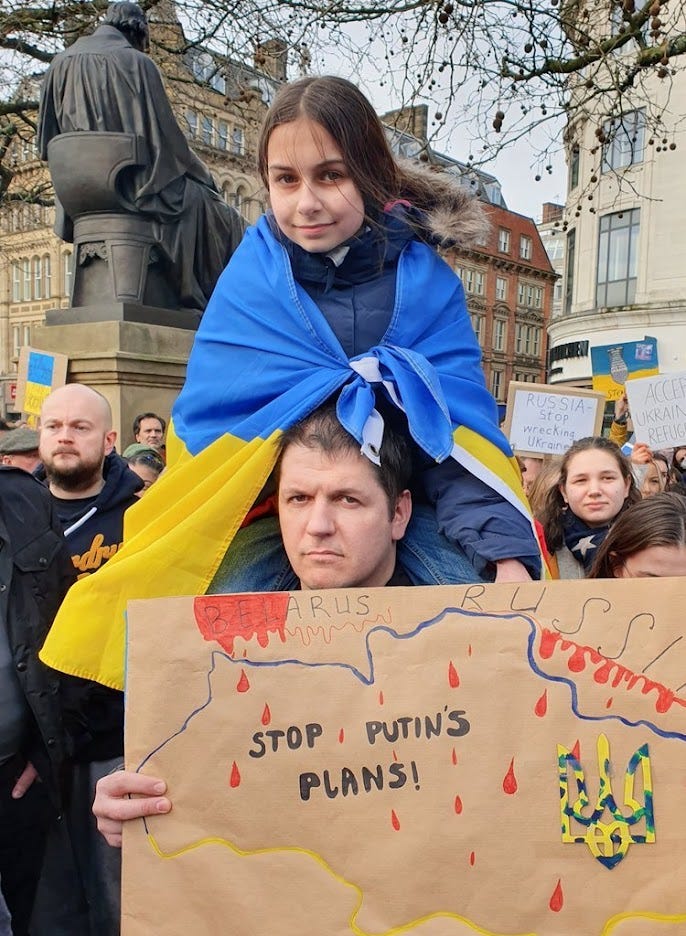
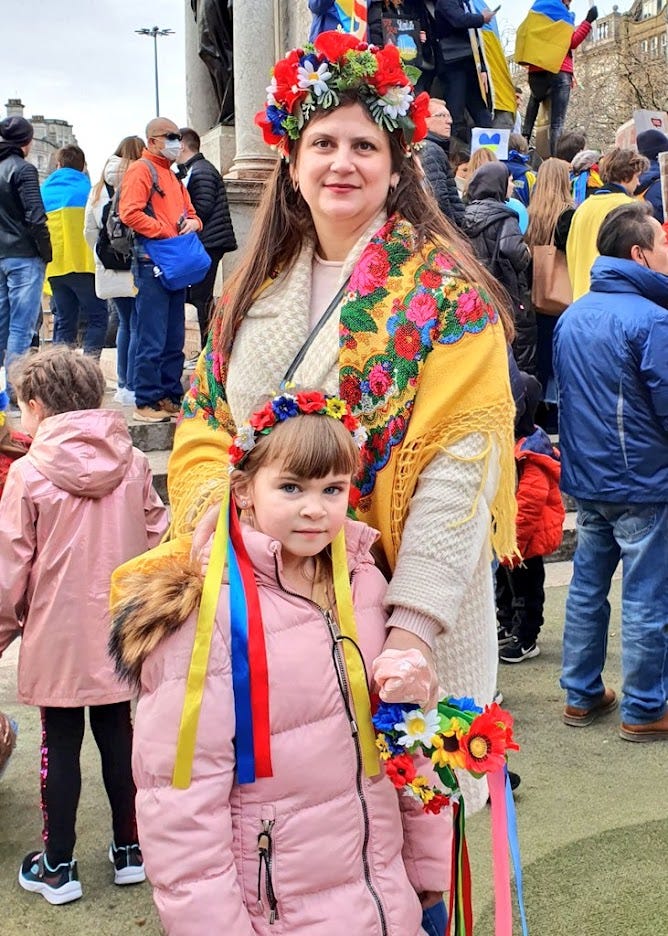
First classs reporting. I’m proud of the Mill today.
Very moving report, thank you 🇺🇦